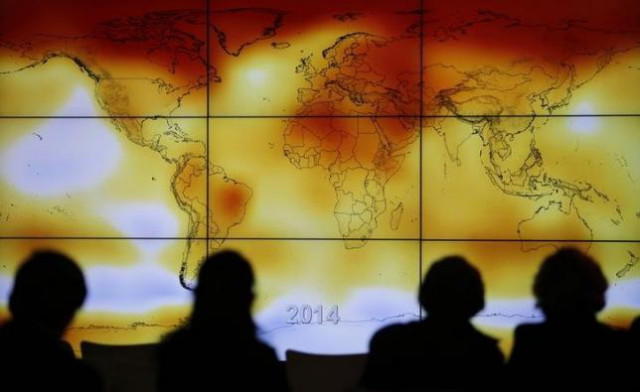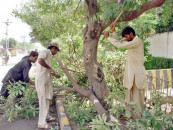Advocates press for climate-resilient capital
Say rapid urbanisation, population boom detrimental to city’s sustainability

Experts at a seminar in Islamabad emphasised the urgent need for the federal capital to develop climate-resilient infrastructure, considering the challenges posed by population growth and climate-related disasters.
The seminar, titled 'Building Urban Climate Resilience in Islamabad,' was jointly organised by the Sustainable Development Policy Institute (SDPI) and Climate Action Network South Asia (CANSA).
CANSA representatives participated in the seminar online.
During the seminar, SDPI Deputy Executive Director Dr Shafqat Munir highlighted the necessity of creating model municipalities with climate-resilient infrastructure. He stressed the importance of a robust local government system in Pakistan to foster climate-smart urban centres and address disasters effectively at the local level. However, financial constraints for local authorities remain a significant hurdle.
Referring to the SDPI Report on the same title, he said in Nepal, a mayor from a small municipality has developed climate-smart infrastructure in his municipality, but in Pakistan, financial constraints for local-level authorities are the main impediments to achieving the goal of urban resilience.
He informed that the SDPI is also engaging with provincial governments to convince them to invest in peri-urban areas and local governments for the sake of climate resilience.
Aleena Kareem emphasised the importance of transparency, better reporting, impact evaluation mechanisms, and public-private partnerships in supporting urban resilience initiatives. She recommended setting net-zero targets for Islamabad to curb carbon emissions and mitigate climate-related disasters.
Nakul from CANSA noted Pakistan's rapid population growth and urbanisation rates, emphasising the need for concerted efforts and mechanisms to address these challenges. He highlighted the vulnerability of South Asian cities to economic development pressures and called for substantial efforts beyond international forums like COP to achieve urban resilience goals.
Zainab Naeem, an Associate Research Fellow at SDPI, presented key findings from the report, emphasizing the link between climate change and urban growth in South Asia. She highlighted the increased health risks in urban areas due to factors like air pollution and extreme heat, as well as the significant investment required for flood protection.
Ashiq Nawaz from the Pakistan Environmental Protection Agency (Pak-EPA) raised concerns about Islamabad's transformation into a business hub, straining its infrastructure and services. He highlighted issues such as watercourse pollution, solid waste management challenges, and the need for integrated resource management.
Irfan Niazi, Deputy Director General of CDA's Environment Wing, discussed the Margalla Hill National Park's land categories and the challenges posed by encroachments and population settlements. He underscored the need for effective waste management and land use planning to ensure sustainable urban development.
Published in The Express Tribune, April 2nd, 2024.


















COMMENTS
Comments are moderated and generally will be posted if they are on-topic and not abusive.
For more information, please see our Comments FAQ